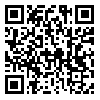Volume 10, Issue 2 (9-2023)
J Jiroft Univ Med Sci 2023, 10(2): 1264-1271 |
Back to browse issues page
Download citation:
BibTeX | RIS | EndNote | Medlars | ProCite | Reference Manager | RefWorks
Send citation to:



BibTeX | RIS | EndNote | Medlars | ProCite | Reference Manager | RefWorks
Send citation to:
Taft Ashian S, Ghasemi Nejad Dhkordi2 A. Investigating the Relationship between Nutritional Knowledge and Eating Disorders with Body Image in Athletic and Non-Athletic Students of the Islamic Azad University of Ahvaz. J Jiroft Univ Med Sci 2023; 10 (2) :1264-1271
URL: http://journal.jmu.ac.ir/article-1-716-en.html
URL: http://journal.jmu.ac.ir/article-1-716-en.html
1- MS. of Sport Physiology, Department of Physical Education, Ahvaz Branch, Islamic Azad University, Ahvaz, Iran
2- Assistant Professor, Department of Physical Education, Ahvaz Branch, Islamic Azad University, Ahvaz, Iran ,Ghaseminezhad_sport@yhoo.com
2- Assistant Professor, Department of Physical Education, Ahvaz Branch, Islamic Azad University, Ahvaz, Iran ,
Abstract: (2969 Views)
| Introduction: The role of nutrition and eating disorders in physical health, and body image in mental health is very important. Therefore, the purpose of this research was investigating the relationship between nutritional knowledge and eating disorders with body image in athletic and non-athletic students of the Islamic Azad University of Ahvaz. Materials and Methods: This study was applied research and employed a descriptive-correlation design, which was carried out in Ahvaz city in 2022. Data collection tool included two questionnaires namely eating disorders and body image designed by Stick et al. and Parmenter and Wardell's nutritional knowledge questionnaire. The athlete community was around 300 people and the number of non-athlete community was around 18000 people. According to Morgan's table, 377 non-athlete students and 169 athletes were selected randomly and by available sampling, respectively. The tests used in this research were Spearman's correlation coefficient and May-Whitney's test, which were performed through SPSS 22 software. Results: The results showed that there was a negative and significant relationship between nutritional knowledge and body image in athletic and non-athletic students, and there was a positive and significant relationship between eating disorders and body image (p<0.05). Conclusion: The result showed that exercise can be effective in eating disorders and nutritional knowledge. Therefore, by improving sports facilities or motivating students to engage in sports activities, it would be possible to provide the basis for improving students’ nutritional knowledge as well as eating disorders. |
Type of Study: Applicable |
Subject:
Medical Sciences / Physiology
Received: 2023/06/11 | Accepted: 2023/09/2 | Published: 2023/09/20
Received: 2023/06/11 | Accepted: 2023/09/2 | Published: 2023/09/20
Send email to the article author
| Rights and permissions | |
 |
This work is licensed under a Creative Commons Attribution-NonCommercial 4.0 International License. |




